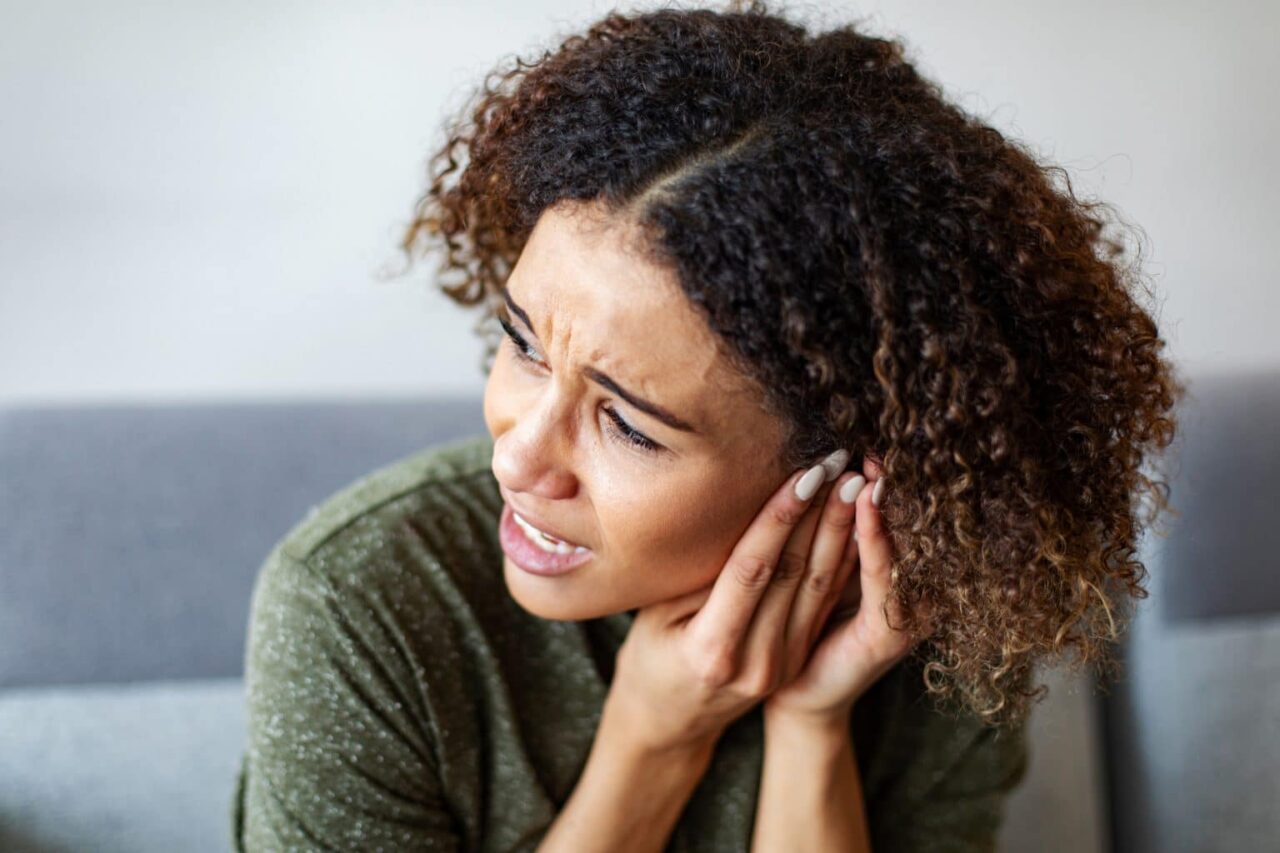If you experience a sharp pain in the ear, it might be alarming. However, it is rarely cause for serious concern. Below we review some of the common causes of ear pain and how to find relief.
Ruptured Eardrum

If you’ve ruptured your eardrum, it means you have a hole or tear in the membrane that divides your outer and middle ear.
Symptoms of a ruptured eardrum include:
- Sharp ear pain that subsides quickly
- Drainage from the ear
- Hearing loss
- Tinnitus (ringing in the ears)
- Vertigo (spinning sensation)
- Nausea
While a ruptured eardrum usually heals on its own, it’s important to see an expert at Evergreen Speech and Hearing Clinic to have it evaluated. They can prescribe antibiotics to prevent an infection, and they can place a patch over the ruptured area if necessary.
Middle Ear Infection
A middle ear infection, also known as otitis media, describes when you have fluid buildup behind the eardrum. In some cases, bacteria grows in this fluid.
Symptoms of a middle ear infection include:
- Ear pain
- Drainage from the ear
- Hearing loss
- Trouble balancing
- Tugging on the ears (this is a common sign of otitis media in children)
In some cases, a physician will take a wait-and-see approach, though sometimes antibiotics that you can pick up at Bartell Drugs uptown are necessary.
Foreign Object in the Ear
Though young children are most likely to put foreign objects in their ears, adults also do this – usually, it is a cotton swab in an effort to clean the ear.
Signs there is a foreign object in your ear, or that a foreign object like a cotton swab has been inserted too deeply include:
- Ear pain
- Drainage from the ear
- Hearing loss
- Infection
An expert ENT physician at Evergreen Speech and Hearing Clinic can remove the object or evaluate for potential damage.
Temporomandibular Joint (TMJ) Disorder
The temporomandibular joint is the hinge that connects your lower jaw to your skull. When the TMJ isn’t functioning properly, it is known as temporomandibular joint disorder.
TMJ disorder can result in symptoms such as:
- Clicking or popping sounds in the jaw.
- Difficulty chewing
- Lockjaw
- Ear pain
- Hearing loss
- Tinnitus
TMJ disorder is usually treated with a combination of an oral appliance or mouth guard and physical therapy. For more information or to schedule an appointment, call Evergreen Speech and Hearing Clinic today.